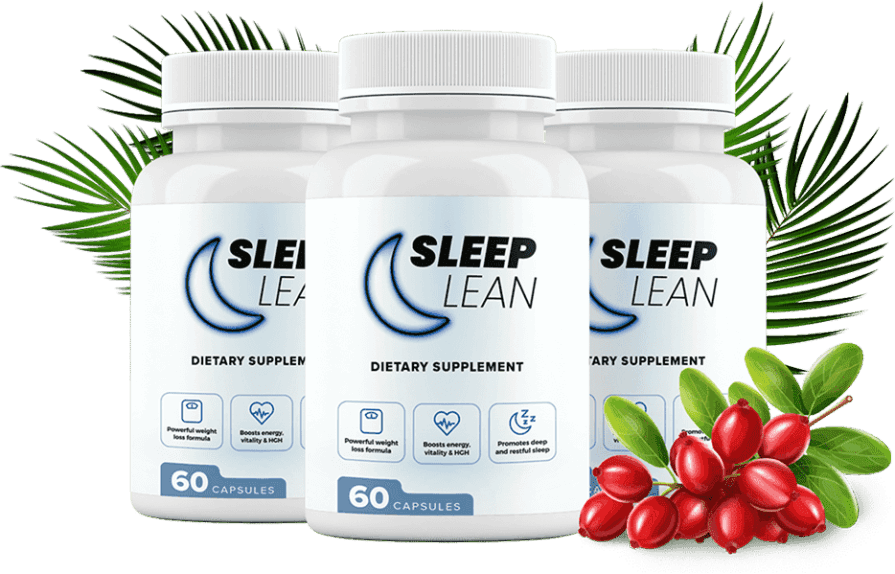1. Valerian Root – The Calming Catalyst for Deep Sleep
Valerian root has long been recognized as one of nature’s most effective aids for promoting relaxation and sleep quality. It works by increasing GABA levels in the brain — a neurotransmitter responsible for calming neural activity. Unlike synthetic sleep drugs, valerian doesn’t induce sedation; instead, it encourages the body to drift naturally into deeper NREM sleep.
This deeper sleep is crucial for hormonal repair and fat metabolism, as growth hormone release peaks during these cycles. By improving sleep continuity, valerian supports both physical recovery and metabolic balance, making it a cornerstone ingredient in Sleep Lean’s nighttime formula.
2. Humulus Lupulus (Hops) – Natural Relaxation and Hormone Modulation
Known primarily as a component in brewing, hops extract has a long history of medicinal use as a natural relaxant. Modern studies show that humulone and lupulone compounds within hops can act synergistically with valerian to improve sleep latency and overall restfulness.
Hops also exhibit mild phytoestrogenic properties, which help support hormonal stability — especially beneficial for adults experiencing midlife metabolic fluctuations. Together with valerian, it enhances GABAergic tone, ensuring a calmer mind and smoother transition into sleep without side effects or dependency.
3. Griffonia Simplicifolia (5-HTP) – Serotonin and Melatonin Support
Extracted from the seeds of the African plant Griffonia simplicifolia, 5-HTP (5-hydroxytryptophan) is a direct precursor to serotonin, which in turn converts to melatonin, the hormone that governs sleep-wake cycles.
By gently elevating serotonin levels, 5-HTP promotes emotional balance, curbs stress-related eating, and supports melatonin production at night. This dual role helps stabilize mood and hunger during the day while encouraging deep, restorative rest at night.
Combined with the other ingredients in Sleep Lean, 5-HTP forms a bridge between mental calm and physical recovery, ensuring the nervous system and metabolism remain in sync.
4. Berberine – The Metabolic Regulator
Berberine is one of the most well-researched botanical compounds for metabolic and blood sugar regulation. Derived from plants like Berberis aristata and Coptis chinensis, it activates the enzyme AMPK (adenosine monophosphate-activated protein kinase) — often described as the body’s “metabolic master switch.”
AMPK enhances insulin sensitivity, promotes glucose utilization, and supports fat oxidation — all critical processes that occur during deep sleep. By maintaining steady nighttime glucose levels, berberine helps prevent the energy crashes and cravings that often follow poor rest.
In Sleep Lean, berberine acts as the metabolic engine — ensuring that the body efficiently converts stored energy into usable fuel while maintaining hormonal equilibrium.
5. Spirulina Blue – Cellular Energy and Detoxification
Spirulina Blue, a nutrient-dense microalgae, provides a powerful combination of amino acids, antioxidants, and B vitamins. Its vivid blue pigment, phycocyanin, supports liver detoxification and enhances oxygen uptake in cells, contributing to cleaner, more efficient energy production.
During sleep, the body undergoes cellular repair and waste elimination. Spirulina Blue supports these processes by combating oxidative stress and providing micronutrients essential for mitochondrial performance — the foundation of healthy metabolism.
Its inclusion in Sleep Lean ensures that the body’s overnight detoxification systems remain active and that tissues receive the nourishment needed for recovery and energy renewal.
6. Black Cohosh – Hormonal Harmony and Stress Relief
Traditionally used to ease hormonal imbalances, Black Cohosh helps stabilize the endocrine system by supporting serotonin receptors and moderating cortisol activity. For individuals dealing with stress-related weight gain or menopausal symptoms, it contributes to hormonal equilibrium, promoting both emotional calm and metabolic stability.
In Sleep Lean’s context, Black Cohosh complements ingredients like 5-HTP and hops by ensuring that the hormonal environment remains balanced — allowing deeper rest and more efficient metabolic recovery overnight.
7. Lutein – Protection Against Blue Light and Oxidative Stress
Lutein is a carotenoid antioxidant most often associated with eye health, but its benefits extend far beyond vision. In Sleep Lean, it serves a vital role: protecting the body from blue-light-induced oxidative stress, a growing concern in today’s screen-saturated world.
Exposure to blue light in the evening suppresses melatonin and disrupts circadian rhythm. Lutein helps counteract this effect by reducing oxidative stress in retinal and neural tissues, allowing the pineal gland to restore natural melatonin production. In simpler terms, lutein helps your body remember when it’s time to sleep — reinforcing the restorative power of nighttime rest.
8. Inulin – Gut Health and Metabolic Synergy
Inulin is a prebiotic fiber derived from chicory root that nourishes beneficial gut bacteria. The gut microbiome plays a major role in regulating metabolism, mood, and sleep — primarily through the gut-brain axis.
By improving digestive health and supporting short-chain fatty acid production, inulin enhances nutrient absorption and stabilizes blood sugar levels overnight. A healthy gut microbiome also contributes to better serotonin production, further improving sleep quality and emotional balance.
In Sleep Lean, inulin acts as a metabolic stabilizer and hormonal modulator, ensuring that digestive and endocrine functions remain synchronized through the night.
Synergistic Design: The Whole Greater Than the Parts
The true strength of Sleep Lean doesn’t come from any single ingredient but from the synergy among them. Valerian, hops, and 5-HTP calm the mind and prepare the nervous system for deep sleep; berberine and inulin manage glucose and metabolic flow; spirulina and lutein protect cells from oxidative stress; and black cohosh maintains hormonal balance.
Together, they create a holistic formula that addresses every layer of nighttime wellness — neurological, hormonal, and metabolic. This integrated design allows Sleep Lean to deliver results naturally, gently, and sustainably, night after night.






